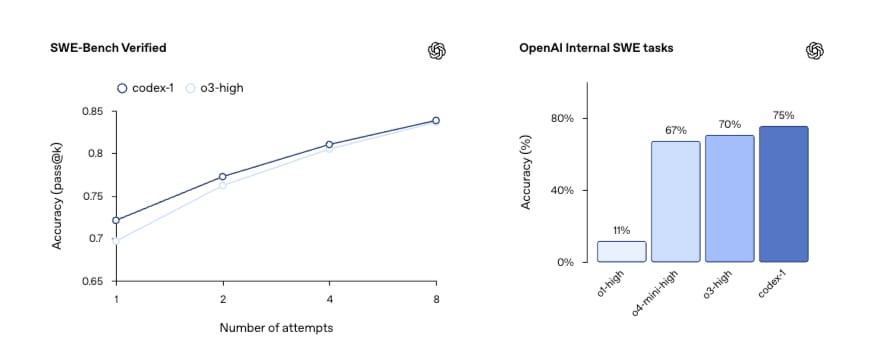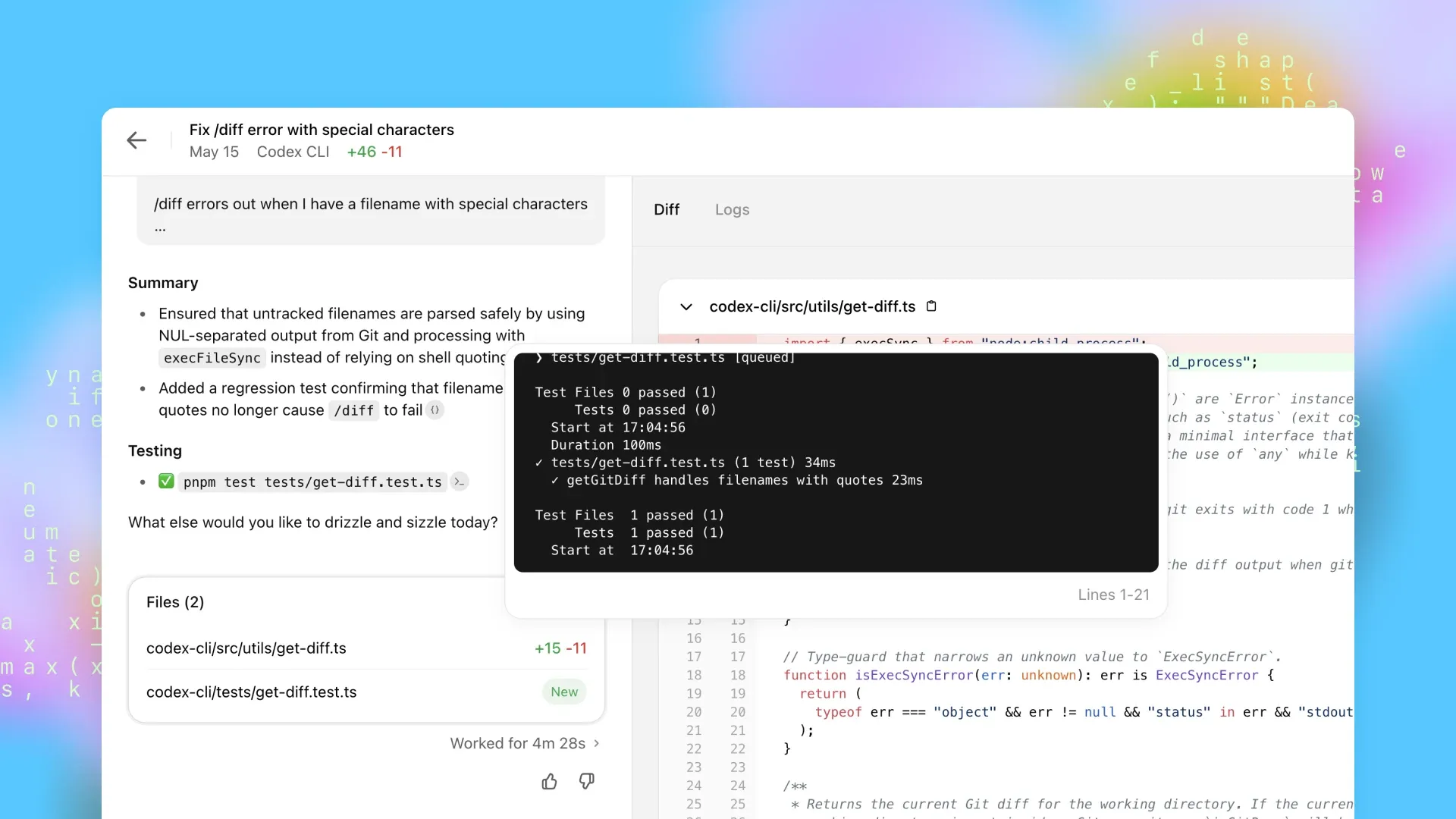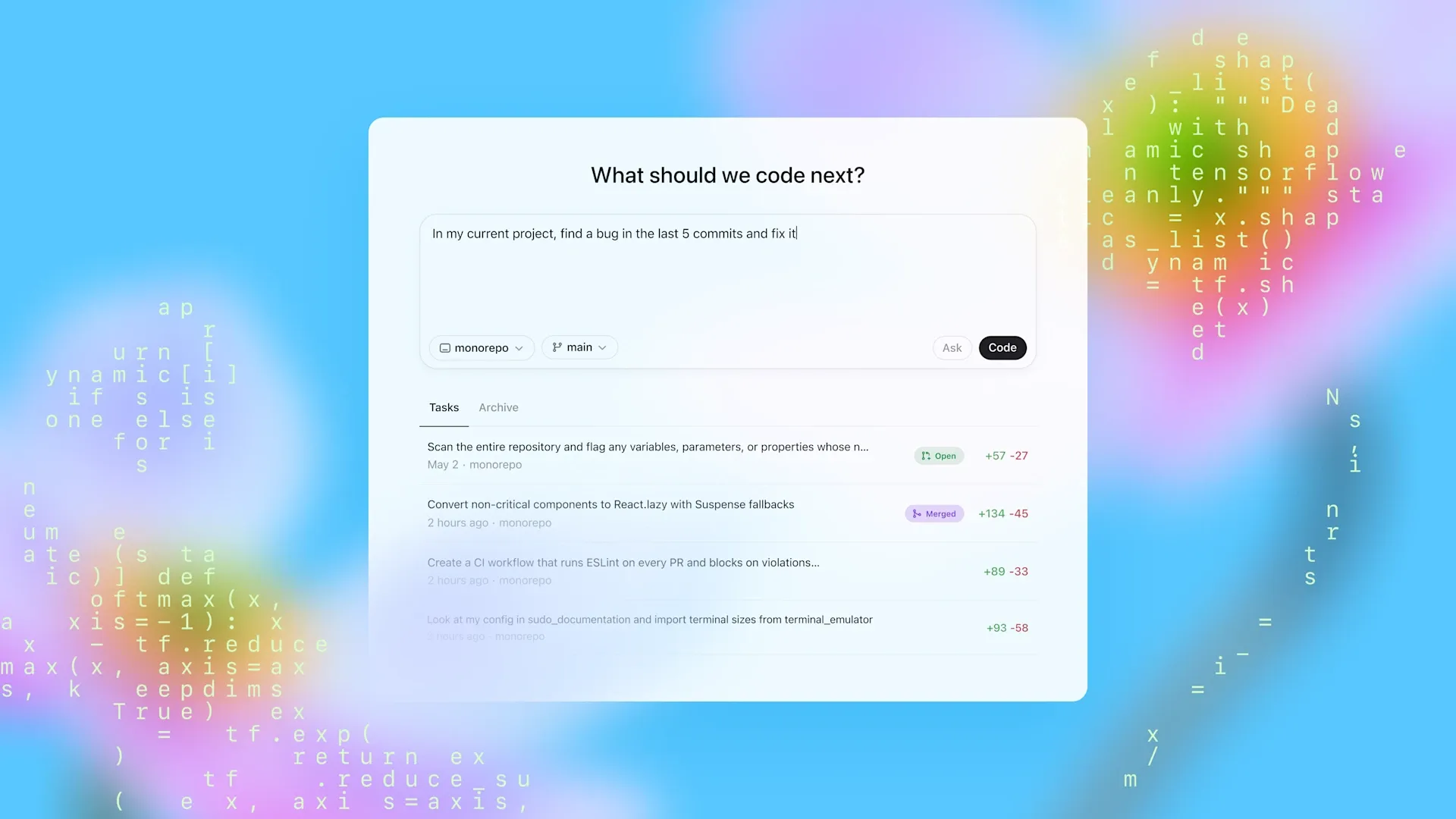OpenAI has introduced Codex, a cloud-based software engineering agent designed to automate a wide range of coding tasks. Codex is powered by the codex-1 model, a specialized version of OpenAI o3, optimized for real-world software development and trained using reinforcement learning on diverse coding tasks. The feature is available as a research preview starting May 16, 2025, for ChatGPT Pro, Enterprise, and Team users, with plans to extend access to Plus and Edu users soon. Codex can be accessed through the ChatGPT sidebar, allowing users to assign coding tasks or ask questions about their codebase, with each task running in a secure, isolated cloud environment preloaded with the user’s repository.
BREAKING 🚨: Codex SWE Agent is coming today to ChatGPT. It is yet unclear if it will be Pro only, which is very likely. https://t.co/m0yQeV5aWi pic.twitter.com/WzPNIShEO8
— TestingCatalog News 🗞 (@testingcatalog) May 16, 2025
Codex handles tasks such as:
- Writing new features
- Fixing bugs
- Proposing pull requests
- Answering architecture questions
It operates by reading and editing files, running tests, linters, and type checkers, and providing verifiable logs and test outputs for each task. Users can review Codex’s changes, request revisions, or integrate the results into their workflows. Codex is guided by AGENTS.md files within repositories, which provide instructions on codebase navigation, testing, and project standards.

Security is a core focus: Codex executes tasks in containers with no internet access, limiting its reach to the provided code and dependencies. It is trained to refuse malicious requests and includes safeguards against abuse. Codex’s outputs are closely aligned with human coding preferences, producing clean, review-ready patches.

OpenAI, the company behind Codex, is known for advancing AI research and deploying large language models. Codex builds on OpenAI’s previous work in code generation, offering more robust, transparent, and secure automation for software teams. Early testers, including companies like Cisco and Temporal, report productivity gains and improved focus by delegating routine or complex coding tasks to Codex. The company plans to expand Codex’s capabilities and integrations, aiming to make AI-powered agents a standard part of the modern software development toolkit.






